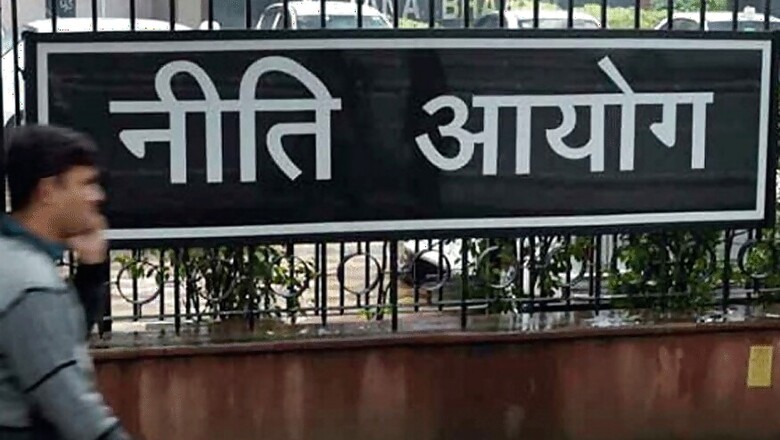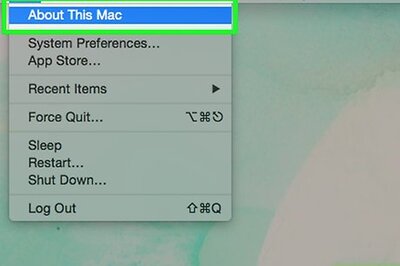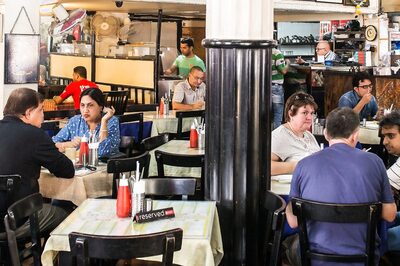
views
New Delhi: The Centre will not offer money to beneficiaries in place of take-home rations provided at anganwadis as proposed earlier, state governments have been told.
The government's think-tank NITI Aayog in its national nutrition strategy had recommended initiating pilot schemes in a few districts to test if cash transfers could replace the provision of take-home rations and supplementary nutrition as part of its Integrated Child Development Scheme (ICDS) to plug leakages.
Under the ICDS, the government provides food, pre-school education and primary health care at anganwadi centres.
As part of the government scheme, a child between six months and three years of age, as well as pregnant and lactating mothers till six months after delivery, get take-home rations. Children in the 3-6 year age group get hot-cooked meals.
The Centre's stand on the issue was clarified after Uttar Pradesh Chief Secretary Rajive Kumar sought permission from the government to start conditional cash transfers.
"The matter has been debated at length in this ministry and at present there is no such proposal for introducing conditional cash transfer in lieu of take home ration," wrote Women and Child Development (WCD) Ministry Secretary R K Shrivastava in response to the request from UP.
The letter dated February 12 was also marked to the chief secretaries of all states and union territories.
A spokesperson of the WCD ministry said the proposal to start cash transfers was struck down when the Cabinet approved the National Nutrition Mission in December last year.
When asked why the proposal was scrapped, the official said there was no way to ensure that the cash transferred would be used for nutrition by the beneficiaries and not for any other purpose.
The NITI Aayog, in its report last September, had said the take-home ration (THR), scheme "has been plagued with complaints of leakages, poor quality food supplement and vested interests and needs to be looked afresh... Pilots may be initiated in a few districts to test the efficacy of implementing the ICDS supplementary nutrition component through a cash transfer/conditional cash transfer route".
WCD Minister Maneka Gandhi had vehemently opposed cash transfers on the ground that a mother would not be able to buy adequate food if she were given the same cash amount that was used to procure rations at wholesale rates.
She had also said there was no way to ensure that the money transferred would be used for the purpose it was intended for.
However, despite the minister's resistance, the PMO had accepted the NITI Aayog's proposal.
The minutes of the meeting held on November 4, 2017, and chaired by Principal Secretary to PM on "Nutrition", mooted that the ministry take up pilot schemes for "Direct Cash Transfer (in DBT mode) in lieu of THR in a select few districts, in consultation with the State Governments".
Anganwadi services are currently being provided at 13.5 lakh centres across the country. There are 9.8 crore beneficiaries of whom nearly 8 crore are children under the age of six years and 1.8 crore are pregnant women and lactating mothers.
Last year, the Union Cabinet had approved an increase in the per day cost per beneficiary from Rs 6 to Rs 8 for children between the ages of six months and three years and from Rs 7 to Rs 9.50 for pregnant women and lactating mothers, which effectively translates into Rs 240 and Rs 285 per person per month respectively.
For severely malnourished children, the cost was revised from Rs 9 to Rs 12.50 translating into Rs 375 per month.
The universal nutrition entitlement scheme is meant to provide supplementary nutrition in the prenatal and neonatal stage for mothers and children and aims at preventing child and maternal mortality, child malnutrition and stunting of growth.
Take-home rations -- which anganwadi beneficiaries can carry back home -- include wheat, soya and sugar.

















Comments
0 comment